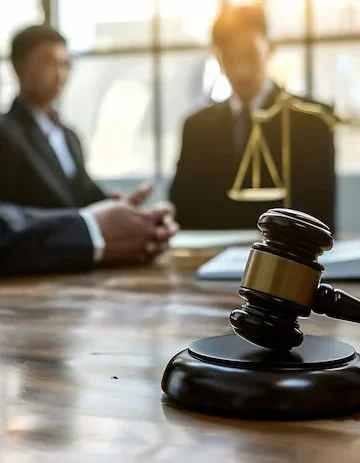Law forms the backbone of society, setting standards for behaviour, protecting rights, and ensuring justice. In the UK, the legal system has evolved over centuries and remains one of the most influential in the world. From its common law traditions to its statutory frameworks, law affects every aspect of life, from business contracts to personal freedoms. This guide explores the foundations, structure, and practical application of law in the UK to provide an in-depth understanding.
The Foundations of UK Law
The UK legal system is unique because it blends centuries of tradition with modern statutory frameworks. Its foundation rests on two main sources:
-
Common law: Developed through judicial decisions and precedents set by courts. These rulings guide future cases and form a flexible, evolving body of law.
-
Statute law: Laws created by Parliament, often codifying or updating principles established in case law.
This dual structure ensures that law can adapt to new social, economic, and technological developments while maintaining continuity with historical legal principles.
The Structure of the UK Legal System
The UK legal system is divided across England and Wales, Scotland, and Northern Ireland. While there are similarities, each has its own distinct elements.
England and Wales
-
Operate under a common legal framework
-
Have a unified court system
-
Use precedent heavily to guide decisions
Scotland
-
Maintains a mixed system combining common law and civil law traditions
-
Has its own courts and legal institutions
-
Features unique laws in areas such as property and criminal justice
Northern Ireland
-
Similar to England and Wales but with its own legislative and judicial distinctions
-
Historical and political context influences its legal development
The Role of Parliament and the Judiciary
Parliament is the supreme law-making authority, passing Acts that apply across the UK or specific regions. However, the judiciary plays a vital role in interpreting those laws and applying them to real cases.
-
Parliament: Creates, amends, and repeals laws
-
Judiciary: Ensures laws are fairly applied and constitutional principles are upheld
-
Separation of powers: Provides balance between legislative and judicial branches
Criminal Law vs Civil Law
Understanding the difference between criminal and civil law is key to grasping how justice operates.
Criminal Law
-
Concerned with offences against the state or society
-
Prosecutions brought by the Crown Prosecution Service (CPS)
-
Penalties can include imprisonment, fines, or community service
-
Examples: theft, assault, fraud
Civil Law
-
Deals with disputes between individuals, groups, or organisations
-
Typically involves compensation rather than punishment
-
Examples: contract disputes, negligence claims, family law matters
Key Branches of Law
Law is broad and diverse. Some of the most important areas include:
-
Family law: Covers marriage, divorce, custody, and adoption
-
Contract law: Governs agreements between parties
-
Property law: Addresses ownership, leases, and land rights
-
Employment law: Protects workers’ rights and employer obligations
-
Tort law: Deals with wrongs causing personal or financial harm
-
Public law: Governs relationships between individuals and the state, including constitutional and administrative law
The Court System in the UK
The court system is hierarchical, allowing appeals and ensuring consistency.
-
Magistrates’ Courts: Handle minor criminal offences and preliminary hearings
-
Crown Court: Deals with serious criminal cases, including trials by jury
-
County Court: Manages civil disputes, such as debt or housing claims
-
High Court: Divided into divisions for civil, family, and administrative matters
-
Court of Appeal: Hears appeals from lower courts
-
Supreme Court: The final court of appeal for the UK
Access to Legal Representation
Everyone has the right to legal advice and representation. This can be obtained through:
-
Solicitors: Provide legal advice, prepare documents, and represent clients in lower courts
-
Barristers: Specialise in advocacy and appear in higher courts
-
Legal aid: Available for those who cannot afford representation, subject to eligibility
The Impact of Human Rights
Human rights shape UK law significantly. The Human Rights Act 1998 incorporated the European Convention on Human Rights into domestic law, ensuring individuals can enforce their rights in UK courts.
Key rights include:
-
Right to life
-
Right to a fair trial
-
Freedom of expression
-
Protection from discrimination
The Importance of Law in Everyday Life
Law is not confined to courts and legislation; it touches daily experiences. Whether signing a rental agreement, making a purchase, or using social media, individuals are subject to legal rights and responsibilities.
Practical examples include:
-
Tenants’ rights in rental housing
-
Consumer rights in purchases
-
Road traffic regulations
-
Workplace protections
The Future of Law in the UK
Law continues to evolve in response to changing circumstances. Issues shaping its development include:
-
Technology: Cybercrime, data protection, and digital contracts
-
Globalisation: Cross-border trade and international cooperation
-
Social change: Family structures, equality movements, and immigration
-
Environmental law: Climate change, sustainability, and corporate responsibility
FAQ
What is the difference between common law and statute law in the UK?
Common law develops through judicial decisions and precedents, while statute law is created by Parliament through legislation.
Can a case be appealed more than once in the UK court system?
Yes. Cases can move through various levels of appeal, ultimately reaching the Supreme Court if significant legal issues are at stake.
Is legal aid still available in the UK?
Yes, but eligibility has been restricted. It depends on the type of case and the applicant’s financial situation.
Do all areas of the UK share the same laws?
No. Scotland and Northern Ireland have separate legal systems with distinct rules, although there is overlap with England and Wales in certain areas.
How does the Human Rights Act affect everyday people?
It allows individuals to challenge breaches of their rights in UK courts rather than going to the European Court of Human Rights in Strasbourg.
What role does the law play in business contracts?
Law ensures contracts are binding and enforceable, offering protection if one party fails to meet obligations.



















